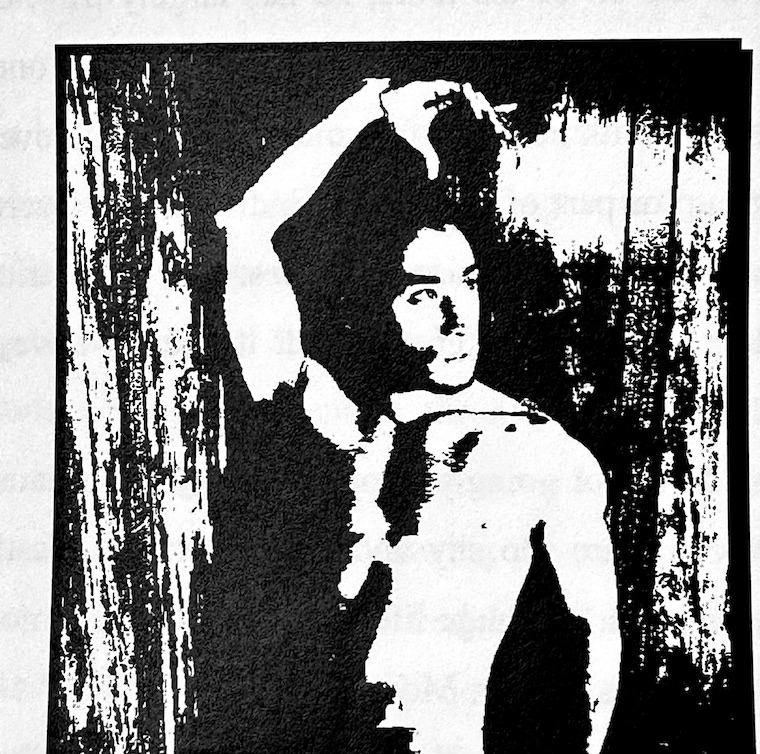~ from OCTOBER 2004 ~
The letter arrived the same day as the new couch. Sitting down on the pristine tapestry, adjusting a soft pillow beneath my back, I savored the moment of holding. not-yet-opened letter from a friend. It was Lee Bailey’s usually typography and return address – an easy-on-the-eyes elegant sans serif style, tendered in a delicate gray color and printed on fine paper.
I opened the letter, excited to read news from Lee or maybe find a party invitation, when the copy of the New York Times obituary unfolded in my hands, along with an explanatory note from his assistant. A black and white photo stared out.
Lee Bailey was dead. I wouldn’t get to see him again.
By most measures, I didn’t know him that well. When I was ten or eleven, I wrote him a fan letter, conveying my interest in gardening and an appreciation for his book ‘Country Flowers’ – the book that got me through a few Northeast winters. Its gorgeous photographs were a comfort, and a tantalizing promise that sun and warmth and green would one day return.
That book also got me through a number of lonely nights, when in the darkness my mind raced with worry – a kid with too much happening in his head, scared of what the next day would bring. I don’t recall specifics – maybe something in school had upset me, maybe the terror was all imagined – I just know I was worried and couldn’t sleep.
Then I would pull the heavy cloth-bound book from beneath the bed, turn on the reading lamp, and sit silently in a small pool of light, reading about gardens and flower anecdotes and a hero who found the freedom to write about those fascinating (for me) matters. The dread lessened then, and I drifted to sleep with soft visions of undulating flower meadows, the fragrant wisps of lavender and mint riding the wind on hot sunny days.
Lee and I struck up a friendship of sorts. He was certainly a mentor, even if he didn’t see it that way. He invited me to visit him in the city “when the roses bloom” and that July I made it down to meet him. Nervously boarding the elevator that took me directly up to his penthouse suite, I patted out the wrinkles in my khakis and wondered what to expect.
Coming from the hot cement bed of a New York City July day, the suite felt gloriously airy. It was cool here, as a breeze brushed through the open doorways and draperies, delicately tickling a palm frond and evoking tranquil vistas of islands and far-away lands.
Lee was frail. I think he used a cane to get around – I don’t rightly remember. He took me on a tour of the potted roses first. A balcony ran around the entire length of the place, holding a collection of container plants. Most of the roses had already finished their first bloom – I had come just a little too late.
We moved inside and a woman brought me a glass of water. Sitting opposite each other on facing couches, we talked. It was a brief visit, and my leave-taking was quick and anti-climactic. Still, I must have impressed him somewhat. After that he regularly invited me to parties and gatherings he held for his birthday and holidays.
Those events were glittering high-society gatherings. I would coerce one of my friends into accompanying me – Suzie or Chris – and beg them to wear something presentable. In one of the unimaginably well-appointed residences of an Upper West Side building, Peter Stone would open his home up for these gatherings in Lee’s honor.
Mostly the crowd left us alone, and we faded into the background gratefully. It was easier to talk to the waiters and the bartender than hob-nob with the rich and the famous. The chill of discernible class difference left us a bit off-balance. A few people did speak to us, albeit briefly. Peter Stone was always a gracious host. Liz Smith came up to Chris and me and asked what two good-looking youngsters were doing at such a party. Joel Schumacher looked right through us, not rudely (and when we saw him on the street a few years later I mentioned the party and he thanked us for remembering him).
At the center of each party was Lee himself. Escorted in later than most everyone else, he sat and received visitors and gifts, warmly and wittily. I looked for an inconspicuous moment to sneak in and say hello out of politeness, and he was always good to me – his hand on mine in the manner of a proper mentor, his eyes kind and sparkling. At one of the last parties he pointed out the writer Rick Whitaker, setting up a friendly introduction. Suzie and I spoke to him for a while.
There were a lot of these opportunities to network, but I never felt right about that. I was there for Lee.
Back to Blog

